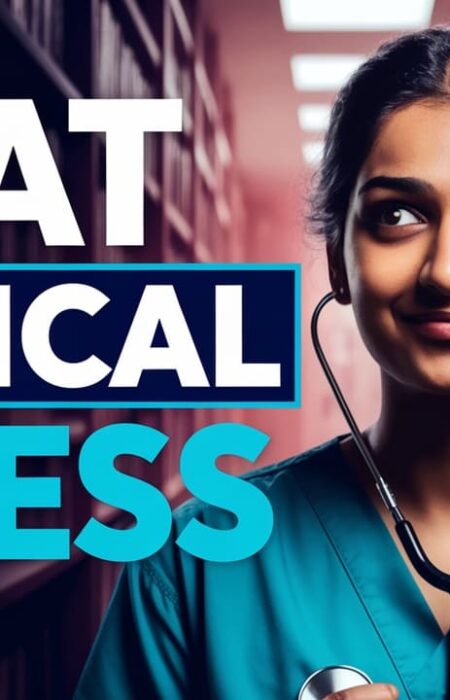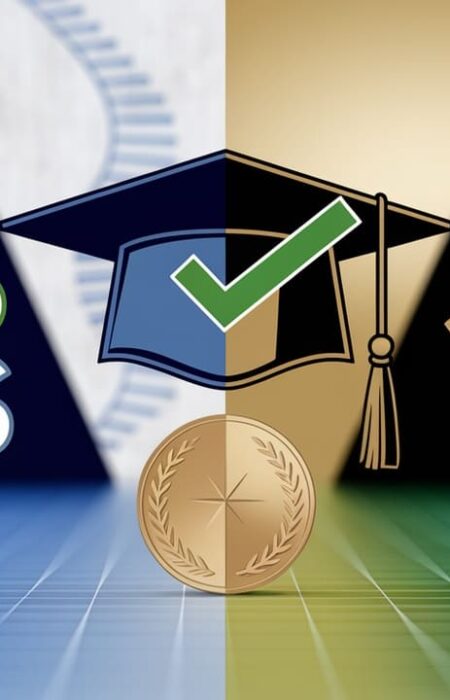Will Your NEET Score Matter in the Future?
Introduction
Hello, future doctors and curious students! In today’s discussion, we address a frequently asked question: “Does your NEET score matter in the long run?” This topic is especially useful if you are presently preparing for or have previously passed the NEET test.
We hope to shed some light on this issue and determine the long-term significance of NEET scores. Together, let’s set out on this insightful journey.
The Crazy NEET Competition
NEET, which stands for National Eligibility and Entrance Test, is the exam through which many medical aspirants in India can become respected doctors. (Why was NEET Exam Introduced?)
The number of candidates who have applied for the NEET exam has steadily increased over the last five years. In 2023, the figure reached close to a whopping 20 LACS.
But does this mean that your NEET score will serve as a passport for the rest of your professional life? No, not at all.
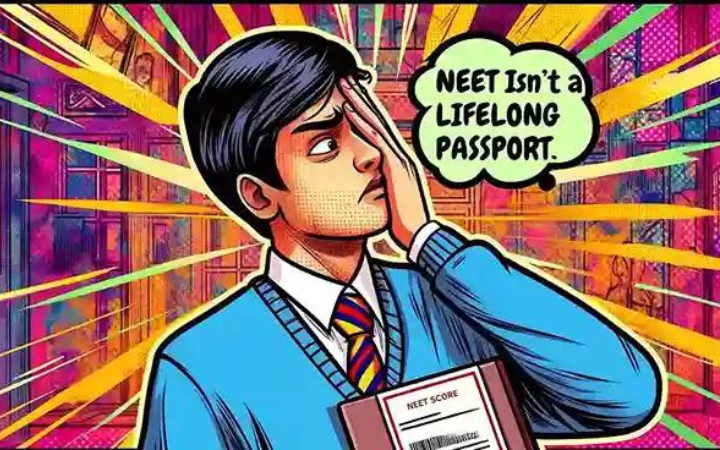
Do NEET scores matter in college? Do your friends or seniors make fun of you if you get a poor score?
A short and simple answer? Yes and no.
Yes, because in the first year, you might have the said experiences:
- Your lecturer asks for your NEET score in front of the entire class – as part of the first-day introduction, to criticize you if you were discovered misbehaving in class, or just to measure your “intelligence.” (which, in my opinion, is an incorrect metric for intelligence)
- You could encounter some insecure peers who would feel better knowing they outperformed you and increased their oh-so-low EGOS. My recommendation? Keep at least 6 feet away from these people–the Chaturs of Medical Colleges. (the kind of folks you meet at college).
- During the opening phase of your “personality development sessions,” your seniors may inquire about your grades. Just tell them your score, and if they laugh, try to ignore it and move on to the next part of your “intro.”
- Your nagging relatives may keep comparing you to their child or another distant, unrelated person to make you feel bad. Get away from your relatives. If you can’t, “smile and wave, boys” and then escape the scene.
These are some of the events you may experience throughout your first year.
No one cares about your NEET UG score or ranking once you enter the second year and your juniors arrive. Exams come and go, and people move on. And you should, too.
The Medical School Landscape is Changing

The world is changing, and so is the medical education sector. It’s no longer simply about passing an exam; it’s about being a compassionate and informed doctor.
A high NEET score can help you get a seat in a medical college, but it’s not the only method.
Medical schools and the National Medical Commission are increasingly emphasizing qualities such as empathy, communication skills, and critical thinking. Scores alone cannot be the judge of these qualities.
You may enter medical school with a great score hoping that it will be enough to be a great doctor, but a good grade does not imply that you will be a good doctor. It simply implies you excel in exam performance. Or worse, perhaps some of the high scorers were simply fortunate in the exam.
Additional Thoughts: Beyond the Score
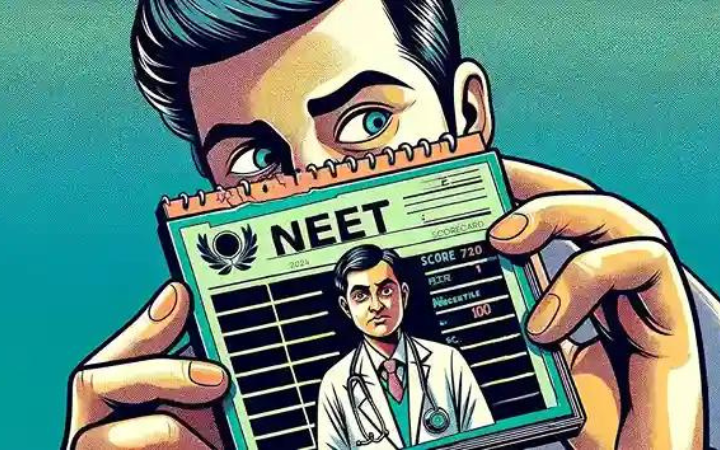
- Admissions: Medical schools in the United States have long taken a comprehensive approach to admissions. They want to know who is behind the scorecard. Extracurricular activities, personal statements, and reference letters all contribute to demonstrating who you are outside of the test hall.
- Foreign tests, such as the USMLE, PLAB, and others, require more than simply a scorecard. A high NEET score might be a good feature to have on your CV, but it is not the be-all and end-all of it. So, even if you receive an outstanding score, you might be able to put a pointer in your CV, but it will be just that- a pointer in the CV.
- Foreign tests, such as the USMLE, PLAB, and others, require more than simply a scorecard. A high NEET score might be a good feature to have on your CV, but it is not the be-all and end-all of it. So, even if you receive an outstanding score, you might be able to put a pointer in your CV, but it will be just that- a pointer in the CV.
- Performance in Interviews: Many PG colleges, particularly international schools, include interviews as part of their selection process. And it’s not only about what you know in interviews; it’s also about how you portray yourself. In an interview, your confidence, communication skills, and love for medicine may all show through.
- Soft Skills: Being a doctor requires more than simply memorizing medical textbooks. It entails interacting with patients from various backgrounds, working in groups, and making rapid judgments. These abilities are becoming increasingly important in the selection process, as seen by the sort of questions asked in the NEET today. The MBBS curriculum is also rather monotonous and does not cover all of the crucial aspects of being a competent doctor.
The Tech Factor
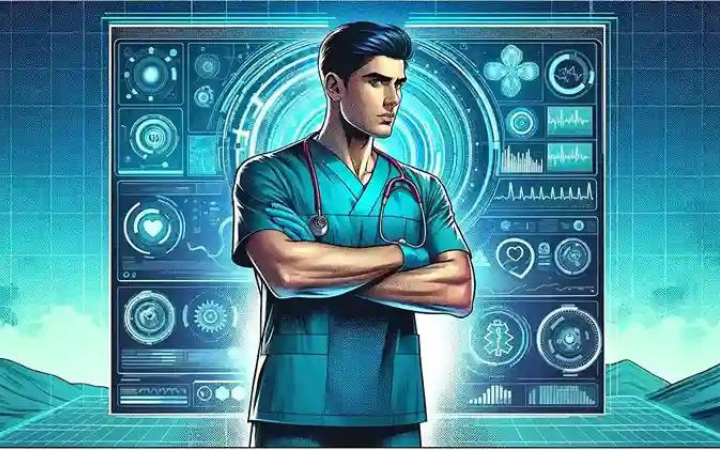
Thanks to technology, everything has changed. Medicine is no different.
Technology like telemedicine, AI, and data analysis are changing the medical field, and doctors need to be able to respond to these changes.
It is not only about treating pateints, but also about how technology is influencing healthcare. So, when you are worried about your NEET score, remember that it will help you get into a medical institution, but your ability to keep current with changes and advancements will define your future success.
Because the MBBS course material is so vast, most Indian MBBS graduates miss out on this component. However, I’ve always made an effort to go beyond the scope of my medical school education. And, you should too.
Furthermore, given the ongoing AI Revolution, “Med-tech” is a good area to pursue throughout your MBBS if you were interested in coding during your school curriculum.
Who can tell the future?
You may be the forerunner of the med tech revolution that the Indian medical system so sorely needs. (Did I mention the insane amount of money you’ll make as an entrepreneur?)
The Compassion Index
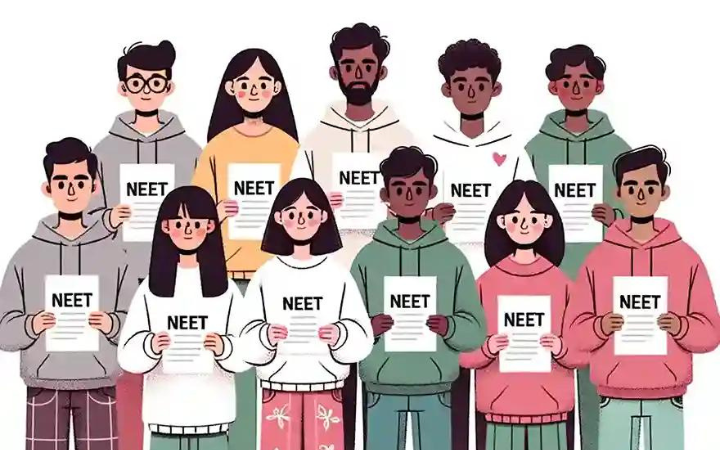
Consider going to a doctor’s office because you are concerned about your health. And he or she shows no compassion and sends you away with just a prescription. That would suck, right? You want a doctor who not only knows their profession but also listens to and empathizes with your problems. At the end of the day, what we want is to “be seen.”
The compassion factor is becoming increasingly important in the field of medicine. Patients expect doctors to treat them as people, not merely medical issues.
So, the next time you are concerned about your NEET score, keep in mind that your heart is just as essential as your head. You listen to help the other person feel heard and seen, not only to gather information and history.
You are as good a doctor as your “patient handling skills”.
The International Perspective
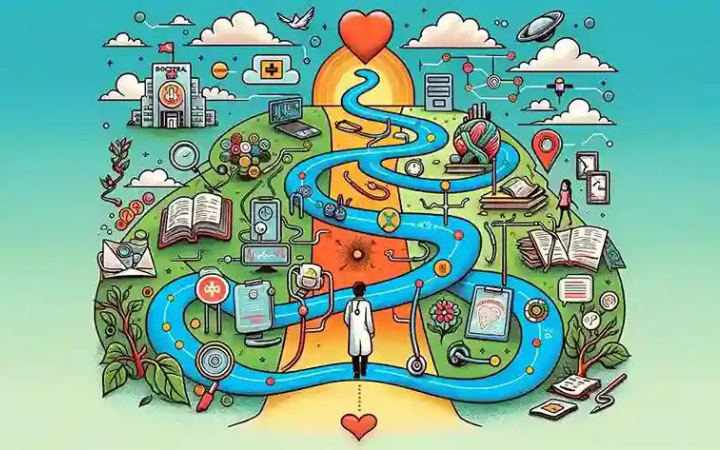
Bravo if you’re thinking beyond countries! Many medical students want to practise in other countries. Different nations have various admission criteria and licensing tests. A high NEET score makes an impression, but it is only one of several factors that foreign institutions assess.
They also take into account your educational background, experience, and performance on their medical admission tests. So, if you wish to pursue a medical profession overseas, keep your choices open and conduct extensive about the entrance pathway. (To understand more about the US medical licencing test, go here.)
Lastly, some thoughts
As we come to the end of our discussion on the future of NEET scores, keep in mind that your NEET score is only one step in the path.
Medical institutions recognise the need of well-rounded clinicians who bring compassion, flexibility, and a global perspective to the table.
So, as you strive for a high NEET score, keep in mind that you must also improve your communication skills, be technologically aware, and prioritise the well-being of your patients.
Remember that the future is changing, and so is the way people are admitted to colleges.
The path to becoming a doctor is a combination of hard work, ongoing education, and a desire to help others. Thus, while you prepare for the future of medicine, keep in mind that your NEET score is but one note in the vast orchestra of your medical career. It’s only one dot on the lengthy road of your medical journey.


